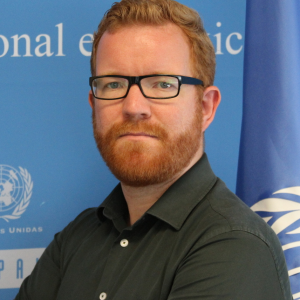Information campaigns pivotal to combat misinformation and increase vaccine uptake though more forceful measures could be considered says Jamaican Economy Panel
30 July 2021
- Today, the Jamaican Economy Panel (JEP) publishes the fourth round of its discussions focusing, this month, on vaccine hesitancy.
The World Health Organization has approved six different vaccines for emergency use and the distribution of vaccines is moving forward slowly but certainly. The unequal distribution of vaccines, while mostly going to developed countries, is an important issue. Yet, vaccine hesitancy is halting the uptake of vaccines in all countries.
Internationally comparable data shows that, amongst fifteen countries polled, the Russian Federation, the United States and Australia are among the most vaccine-hesitant. There is an increase over time in the willingness to be vaccinated in other countries, but the vaccination rates are still too low to truly fight the COVID-19 pandemic.
The JEP panelists contemplated what they believe drives vaccine hesitancy. Most of the respondents focused on the fact that many people are generally uninformed or unable to estimate the risks associated with COVID-19. Dr. Nadine McCloud, Head of the Economics Department at UWI Mona and co-founder of the JEP, opines that “This pandemic has highlighted that health literacy faces major challenges throughout the world. Suppose individual people cannot correctly reckon their risks associated with COVID-19 and the vaccination. In that case, this can result in greater vaccine hesitancy than what one would expect. Addressing such health literacy challenges requires a structural approach from the basic education level. However, given that this solution is long-term and countries must race against time to reduce vaccine hesitancy and rein in this pandemic, governments should also employ widespread use of orthodox and unorthodox communication tools to increase health literacy.”
The JEP panelists also voiced their views on several policies applied in different countries to address vaccine hesitancy. The importance of information campaigns for low-information households is almost universally endorsed. Half of the respondents also recognize that distinguishing public-health restrictions between the vaccinated and the unvaccinated can play a key role. Another associated matter is that, whichever policy governments apply, people must be aware of the advantages of vaccination (beyond protection from disease), such as reduced quarantine upon entering the country.
Finally, although very few respondents champion making vaccination compulsory in all circumstances, they were asked about which possible exceptions they could recognize. Two specific groups stand out: healthcare workers and teachers (as long as there are no approved vaccines for children). A large majority of respondents supports making vaccines mandatory for those groups, despite the ethical conundrum associated with doing so.
Responding to the survey results, Dr. Garry Conille, United Nations Resident Coordinator, shared that “Vaccine hesitancy is a real challenge in addressing the COVID-19 pandemic. It requires a careful balance of individual rights and the rights of the overall population to be protected. Making vaccination mandatory for everyone is a major rights infringement, but it makes sense to provide the right incentives to encourage individuals to get vaccinated. I believe that distinguishing the public-health requirements between the vaccinated and the unvaccinated would make sense, but only when a substantial portion of the population has had the opportunity to get vaccinated.”
The Jamaican Economy Panel is part of a partnership between the United Nations Resident Coordinator’s Office (UNRCO) and the Department of Economics at The University of the West Indies (UWI) Mona. The JEP brings together a select group of economic and public sector experts to address monthly socio-economic questions. These questions help to highlight relevant economic issues and the collective expertise of the panelists.
The full results of this month’s discussion are available HERE.




